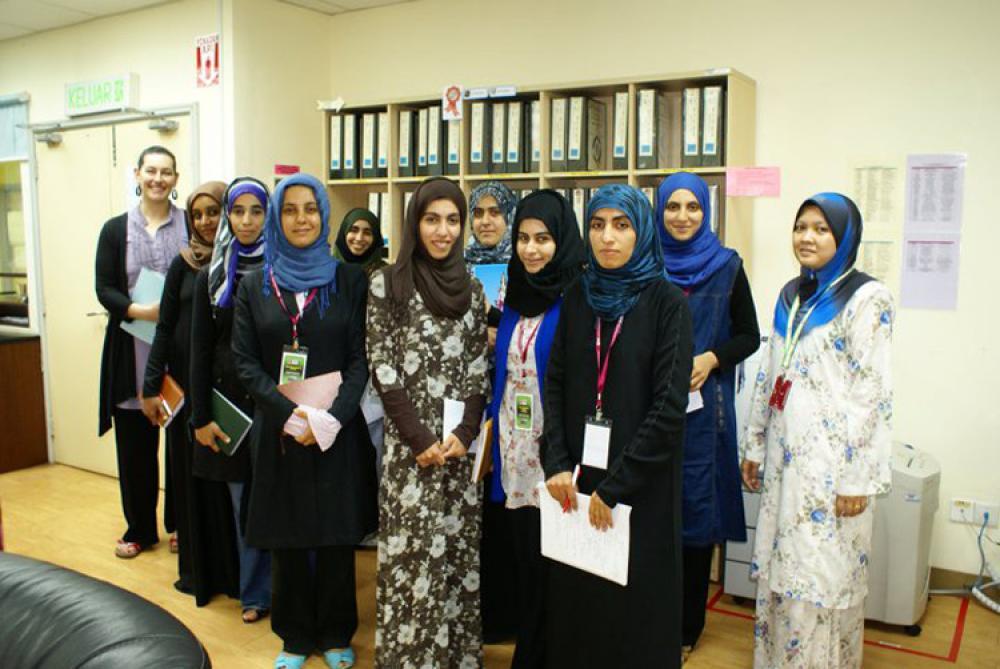| ◄ Previous | Next ► |
|
The Since the year 2000, UPM has been developing and improving their quality management system to serve their student body and its surrounding communities. Their commitment to quality has lead to ISO certification for some of the sub-units of this organization; such as the Faculty of Engineering. Initially they started implementing their QMS in December 1999 and conducted its first internal audit in December 2000. In August 2001, the UPM Faculty of Engineering successfully obtained an ISO 9001:1994 (Malaysian Standard) Certificate from the certifying body, SIRIM (Standards and Industrial Research Institute of Malaysia). In the same year the Faculty opened a Quality Assurance Unit to ensure quality and processes and procedures of the work. This course focused on the current ISO quality standard (9001:2008), which provides principles and guidelines for institutions to be followed in order to achieve a constant level of quality and meet customer satisfaction. It is underpinned by eight management principles which are: a customer focus, leadership, involvement of people, process approach, system approach to management, continual improvement, factual approach to decision making, and mutually beneficial supplier relationships. The International Organization of Standards developed the standard to provide a more uniform approach to developing quality services and produces to emerging and established global markets. The training program was scheduled for three weeks commencing on May 21st and concluded on 11th June 2011. The training focused on developing critical thinking skills and methods to assess the conformity of an organizational unit to the organizationís Quality Plan. Planning is an intrigue part of any standardized QMS designed to meet and comply with the international ISO standards. The Quality Plan details the organizationís approach to meeting the ISO quality standards and addressing any non-conformity to the quality plan. The indentified non-conformities are recorded in a Non-conformity Report (NCR), and corrective actions are recommended by the auditor. The At the inception of the training, the Faculty of Engineering staff members welcomed the trainees warmly and gave them a briefed presentation about UPM and their QMS. The UPM Faculty of Engineering Dean delivered a speech welcoming the UoN staff to the UPM and encouraged the staff to obtain the maximum benefit from this ISO training. The initial workshops were theoretical and discussed many topics, such as: introduction to QMS, fundamental and benefits of QMS, ISO 9001 series standards, documentation, and introduction to internal audit. The trainees were taught how to develop an educational process, mapping it and how to present their findings. The staff members to visited various facilities on the UPM campus during their last week of training to get a first hand perspective of how the QMS is implemented to ensure quality. They paid visits to five labs: Mechanical Engineering lab, Metal lab, CAD (Computer Aided Design), Moreover, the trainees visited the Academic Offices, Library, Quality Assurance Office, and four of the eight Engineering Departments and they were introduced to the Japanese ď5SĒ approach to administrative organization system. The UPM administrative staff met with the UoN staff members and showed no hesitation in answering questions regarding their implementation of the Japanese ď5SĒ approach to administrative organization system. The UoN staff members realized that integrating efficient aspects of the native culture to achieve an international standard it is good idea, because the integration of the native allows people to embrace a foreign concept. In addition to these visits, the trainees participated in other activities; for instance, attending a seminar of Outcome Based Education (OBE) and were allowed to attend workshop in preparation for upcoming UPM ISO internal audit. In the ISO Internal Audit Workshop, they gained significant insight to the intricate process that facilitates the review of controlled document. This intricate process requires teamwork and a shared commitment for quality that involves representatives from every department who are evaluated by qualified internal auditors. The last day of the training was very special, because the participants of this training program were given certificates of participation from UPM. Hospitably, the UPM, Vice-Chancellor for Research and Innovation invited the group for farewell dinner gathering on the eve of the departure. On the other hand, the UoN staff members were also given an opportunity to enjoy their free time by visiting various landmarks in Being a multicultural society, the locals are very intrigued by Omani culture that was displayed by the staff memberís abayas and shelias. We can say that all parties involved can say that they shared a truly rewarding learning experience in |






